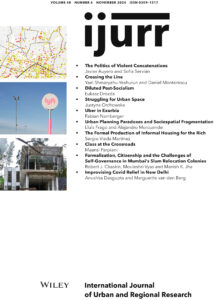More than three decades after the dissolution of the Soviet Union, the post-socialist framework prevalent in the academic world is raising more and more questions. The three most serious doubts have to do with: (1) the time that has elapsed since the collapse of the state-socialist system, which means that local urbanization has been influenced by factors other than just this period; (2) the unclear geographical boundaries of the post-socialist world; (3) the questionable way of defining certain issues as rooted in post-socialism. The aim of the article is to describe the impact of the state-socialist experience on the current state of urban affairs and related policies, using the opinions of practitioners instead of those of academic researchers or document analysis, and five cities as examples: Leipzig, Germany; Krakow and Warsaw, Poland; Kyiv and Lviv, Ukraine. It seems that today we should rather speak of diluted post-socialist experiences that parallel in a more indirect way processes rooted in the pre-socialist past and non-socialist events in the post-1989–91 period modulated by various critical junctures and external factors specific to individual cases. The data sources used include a review of the literature and the author’s own field research conducted in 2021 and 2022.
Details
Written by:
Łukasz Drozda
Digital Object Identifier (DOI)
https://doi.org/10.1111/1468-2427.13286
About DOI

